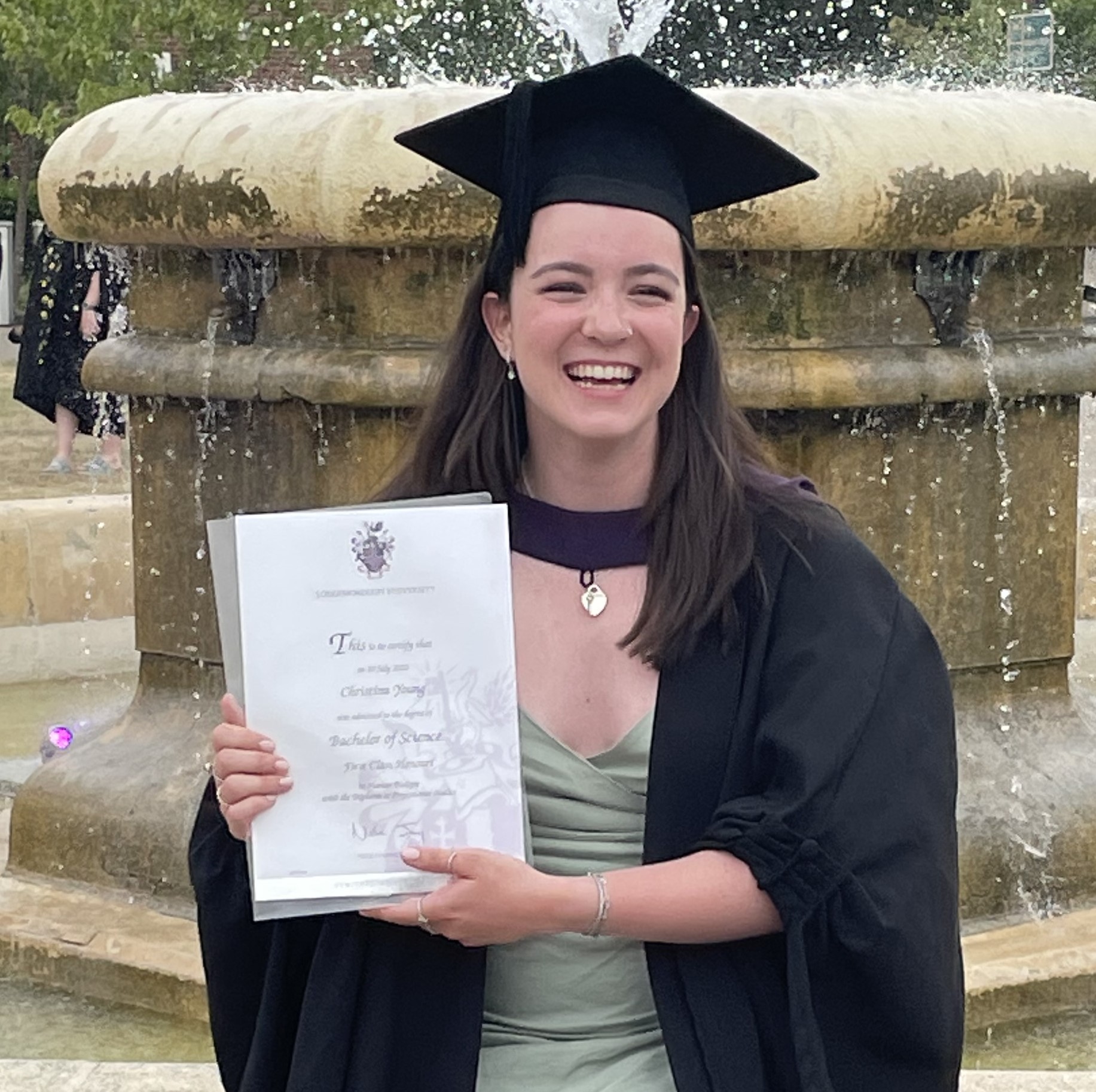Christina Young
- Course
- Human Biology BSc
- Subject area
- Biosciences
I work for the Ministry of Defence, in the Army Health and Performance Research Team as a Research Support Officer.
My role primarily involves data collection for a female health study, investigating the effectiveness of monitoring physiology of ovulation using wearables in energy demanding roles.
Other responsibilities of my job include assisting with all aspects of setting up and conducting human research trials, data collection, data analysis, calibrating lab equipment, conducting literature searches / reviews, maintenance of the lab and trial / lab documentation.
Additionally, I work on numerous other studies spanning thermal physiology, biochemistry, nutrition, and epidemiology.
I decided on the area I wanted to work in after undertaking an industrial placement year in the Army Health and Performance Research team. I loved the independence I was given to work on projects, alongside all the amazing projects I was able to contribute to.

I did my placement in the team I currently work in. The placement role was called Industrial Placement student. However the role much resembled a research assistant and therefore I got to get thoroughly stuck in, conducting hands on, primary data collection.
My placement year was my first work role strictly related to science, as opposed to a summer job – it taught me a lot about work-life balance. My attitude throughout my placement was to say yes to every opportunity and to throw myself in at the deep end, however not at the cost of burn out. It can be important as a graduate, typically when you want to impress your managers and those above you, to remain practical and realistic in your expectations and output.
Placement greatly increased my confidence in both my scientific skills but also my creative and communicative skills. During my time I was given much more independence than I anticipated and thus as a result my confidence in these avenues grew, as I was able to practice them daily.
The variety of modules covered during my degree have also been super valuable in my current role, it has allowed me to work on a variety of different research studies – it gave me the baseline knowledge to show I was competent and understood the basics in which to build upon.
Additionally, the learned ability to translate and communicate science to multiple audiences, which was developed throughout my degree by coursework has enabled me to communicate with a multitude of difference audiences from recruits to stakeholders to high-ranking military personnel.
Participating in all the practical / lab sessions throughout the degree has also helped me in my career. If you wish to go into research, you will be required to be able to perform several laboratory tests and to work a vast amount of equipment. Actively listening and participating in these practical sessions will set you up well.
My advice for those unsure of what career to go into would be to speak to professionals in the field job and seek experience, you will never know if you enjoy something unless you try. Even if you don’t enjoy the experience, as you thought you would, that is a valuable lesson.